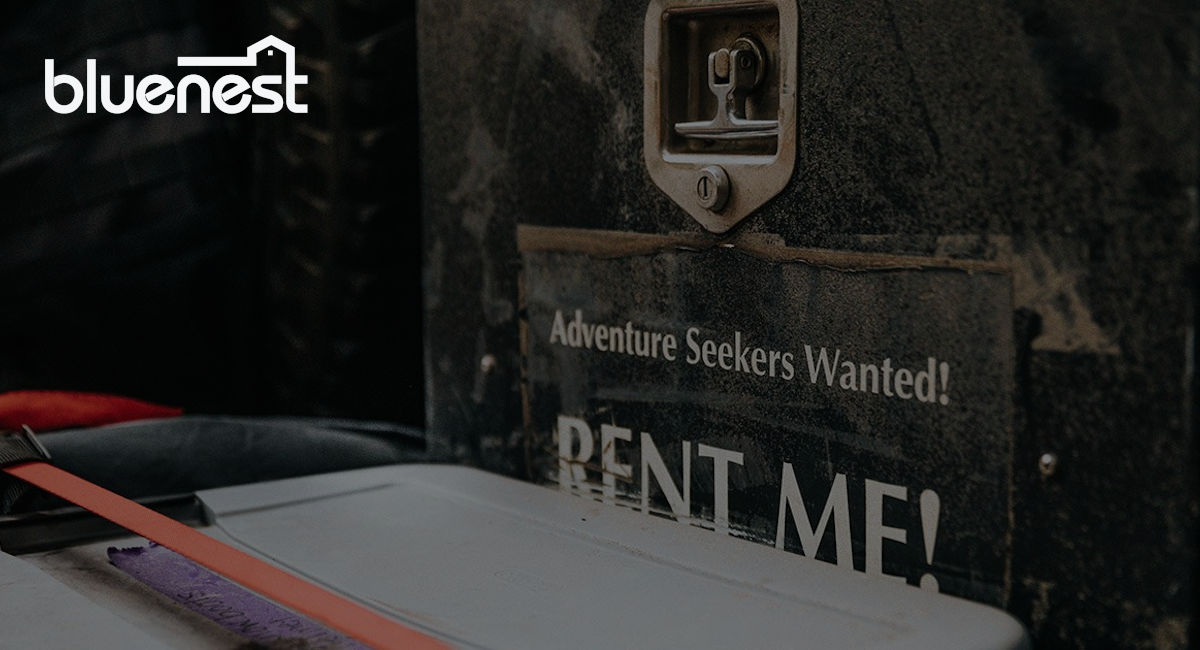
Most Singaporeans think that renting out their flat or condo is an easy way of making some passive income.
Sure, it might take a month or two of talking to potential tenants and conducting viewings before you get your property rented out. But once you do that, you’ll earn a steady stream of rental income, every single month.
Now, what these folks don’t realize is that there are plenty of costs involved in becoming a landlord as well, including…
In this guide, we’ll walk you through the various costs involved with renting out your property, so you have a better idea of what to expect. Read on to find out more!
Assuming you’re renting out your entire unit and not a single bedroom, you’ll have to pack up all your things and move them to your new residence.
Now, one option is to go the DIY route and rent a van. If you do this, you’ll probably have to make a few trips back and forth (unless you’ve Marie Kondo-ed your apartment, and your entire family’s possessions can fit into one van).
For those who find this too much of a hassle, you can also engage house movers to help you out. The cheapest movers in Singapore charge between $350 to $550 per 14-foot truck.
Upfront expense = $350 – $550
If you’re renting out your flat, you’ll need to obtain HDB’s approval. When you’re submitting your application, you’ll have to pay a flat fee of $20.
Upfront expense = $20
If it’s your first time renting out your home, your best option is to enlist the help of a property agent.
Now, you might be thinking… I’m perfectly capable of snapping a few pictures of my home and uploading them on property portals. What do I need an agent for?
Well, agents don’t just help you with putting up listings, they also:
Generally speaking, if your tenant signs a one-year lease, you’ll pay half a month’s worth of rent to your property agent.
If your tenant signs a two-year lease, then you’ll pay double that amount (ie: one month’s rent) to your agent.
Assuming you’re renting your apartment for $3,000 and you land a tenant who signs a one-year lease, your agent fees will set you back by $1,500. If you’re renting out a single room for $800 a month, you’ll pay $400 in agent fees.
Upfront expense = $400 – $1,500
It’s pretty rare to find a tenant who’s happy with everything and wants to rent your place as-is.
Instead, a potential tenant might say that they’ll rent your property, IF you pay for a fresh coat of paint / install air-conditioning in all three bedrooms / provide them with a washing machine, etc.
You can refuse, of course, but this will just mean that your property will be left vacant for longer.
Assuming your property is fairly new and there aren’t too many visible signs of wear and tear, you might expect to spend $200 to $500 on updating your furniture/fixtures as per your tenant’s requests.
Upfront expense = $200 – $500
This bit depends on whether you’re letting out a single room or the whole unit.
Room-rental tenancy agreements typically put the cost of maintenance and repairs under landlords. That means air-con maintenance, plumbing repairs, and even light bulb changes are your responsibility.
If you’re renting out your whole apartment, it’s a different story. The usual practice is that any maintenance work under $200-300 is the tenant’s responsibility, since you can’t be expected to pop by every time they need a light bulb changed. But if the pipe under the kitchen sink bursts and floods the place? That’s on you.
Older properties will also cost more to maintain, since after 15 years or so pipes tend to corrode and leak. So expect to set aside a bigger budget in this case.
Recurring expense = $300 – $2,000/year
Properties are a sizable investment in Singapore. You may be furnishing the place with the bare minimum required to rent it out, but the property itself is the most expensive asset and well worth protecting.
So given that homeowner’s insurance is a light financial commitment relative to the amount of protection you’ll get, we’d recommend signing up for at least a basic plan.
For example, FWD has a home insurance policy that will cost you anywhere from $31 to $209 per year.
Recurring expense = $31 – $209/year
Two things in life are certain: death and taxes.
And 20% of your rental income goes to IRAS, unfortunately.
Assuming you’re renting out your apartment at $3,000 per month, this works out to $36,000 of rental income that you’re generating per year.
Taxes (Estimated) = 20% x $36,000 = $7,200
Recurring expense = Up to $7,200/year (depending on net rental income)
Finally, keep in mind that the amount of property tax you’ll have to pay increases when you’re renting your home out.
Here, you can compare and contrast the rates for yourself:

For instance, if your property’s Annual Value (AV) is $40,000, this is what you’d have to pay:
As an owner-occupier:
$32,000 x 0.04 = $1,280
As a landlord who’s renting out the entire property:
$30,000 x 0.10 = $3,000
$10,000 x 0.12 = $1,200
Total = $4,200
Extra expense incurred as a landlord = $4,200 – $1,280 = $2,920.
If you’re not sure how much property tax you’re liable to pay, use IRAS’s calculator.
Recurring expense = Up to $2,920/year
—
What other questions do you have about renting out your home in Singapore? Let us know in the comments!